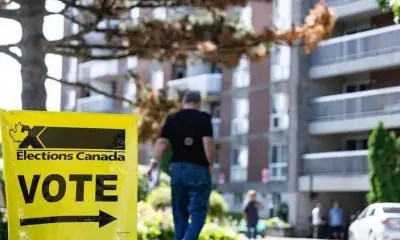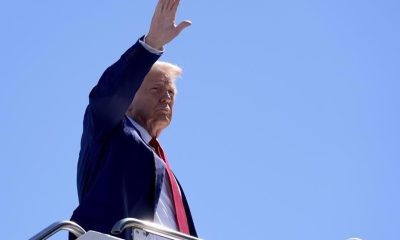“Political attack ads call all of politics into disrepute, ultimately undermining trust in all politicians and eroding citizens’ confidence that democracy is the best system for choosing our leaders,” writes Peter Loewen. On the other side, “what voters need to know is not just what’s desirable but what’s possible, and how,” writes Rick Salutin. “It’s useful to see candidates pick each other and their proposals apart. Ads are just one way of doing that.”
Politics
The Saturday Debate: Are attack ads bad for politics? – Toronto Star
Peter Loewen
Incoming director of the Munk School of Global Affairs and Public Policy
Negative politics — and its favourite tactic, attack ads — erode trust in our democracy, polarize voters, and cause enmity between citizens. Attack ads are not good for our politics.
Of course, in the short term, attack ads may be good for politicians. Attack ads can convey important and true information about an opponent’s past statements, their current policy positions, and even their future actions. In short, they may be informative.
Precisely because attack ads are cast in a negative light, they may attract more attention from voters, causing them to attend more closely. Humans, after all, are hard-wired to pay attention to that which makes us anxious or threatens us. Attack ads may also lead voters to think the stakes in an election are higher and that the divisions between parties are greater than they really are. In sum, they may be motivating.
Attacks ads may well work to serve the ends of one politician over another. In the business of getting votes and winning elections, then, they may be good for politicians. But are they good for politics?
Potato chips are wonderful for satisfying a craving hunger. They are a poor basis for a healthy diet and a long life. Attack ads may help in the short term. In the long term, they degrade our politics.
Here are principal ways attack ads are bad for our politics.
- First, they call all of politics into disrepute, ultimately undermining trust in all politicians and eroding citizens’ confidence that democracy is the best system for choosing our leaders. A small thought experiment makes this point.
Why, for example, does McDonald’s not run advertisements running down Burger King’s products? Surely, they believe their own are better and that consumers ought to choose them. Why not simply “raise an interesting question” about where exactly Burger King’s beef comes from? At least one reason is that this could erode the total market demand for hamburgers. If Burger King is bad for you, maybe McDonald’s is, too.
Politicians are in a different business, though. The party that takes power does so irrespective about how many people vote in absolute terms. All that matters is the share of votes received. The steady decline in turnout we have seen over the past half century has at least something to do with the persistent negativity of our politics.
- Second, negative ads likely increase polarization. Politics — even in Canada — is increasingly polarized around issues. This polarization can happen in at least two ways.
One way is that voters take increasingly extreme views on issues, rather than centrist views. This is at least partially caused by political rhetoric that emphasizes stark positions.
The other is that voters are more consistently ideological in their views, so voters who have a certain position on one issue — say abortion — will have a certain position on another unrelated issue — say, capital gains taxes. By engaging negative campaigning on issues, parties increase the stakes of those issues, compelling partisans to get in line with other partisans, rather than entertaining a diversity of opinions. This polarization, as my colleague Eric Merkley has shown, is not limited to the United States.
- Third, negative advertising and campaigning increases enmity between people. Attack ads that call into question the fundamental motivations and values of politicians cause voters to hold more negative opinions of those leaders. But the effect is not contained. Instead, it bleeds into their evaluations of the people who support those leaders.
Again, as my colleague Eric Merkley has shown, voters in Canada have increasingly negative feelings not only about politicians in other parties, but about the people who vote for them.
One of the great tricks of democratic politics is that it allows us to solve a big problem — who will make and enforce the rules for our lives — in a peaceful way. And by doing it only every few years, it allows us to otherwise go about our lives peaceably and productively.
If negative politics threatens that, it does so by deceiving us into believing that this is a bad way to govern ourselves and by leading us to think that our fellow citizens are not deserving of our respect because we disagree over some small set of issues. This may well be good for politicians seeking to be elected, but it is bad for us and for our politics.
Rick Salutin
Freelance contributing columnist for the Star
Bad for politics? Attack ads are politics in our system, more or less. We have an adversarial politics, just as we have an adversarial legal system. So there’s a loyal opposition, with the emphasis on opposing. Scrapping attack ads would be like eliminating cross-examinations in court.
Different systems are surely possible. Some countries have “neutral” judicial bodies that investigate and judge crimes. We have places in Canada — Nunavut or the Northwest Territories — that operate on consensus politics without an opposition, the way municipalities are supposed to.
But there’s something to be said for attack strategies in politics. Long ago I studied with a Marxist, Herbert Marcuse, who called his book, “One-Dimensional Man,” an “exercise in the power of negative thinking.” That itself was an attack on a sappy bestseller of the time called “The Power of Positive Thinking.”
It’s too easy in politics to burble on positively, making promises. What voters need to know is not just what’s desirable but what’s possible, and how. They often say that their vote comes down to choosing the least worst option. So it’s useful to see candidates pick each other and their proposals apart.
Ads are just one way of doing that, and they should certainly be regulated. But the plus is that we’ve all seen so many ads, essentially since birth, that we can be judgmental ourselves, and learn things even from dubious cases.
Take the stupid Willy Wonka ad that Conservatives put out before the last federal campaign, with Justin Trudeau’s face ineptly superimposed on a film character. It was like saying, “If we can’t even make a competent ad, why would you trust us to run Canada?” Their own MPs were embarrassed and it got pulled.
Or take the current flood of ads about Ontario’s coming election.
The PCs are running a radio ad of Doug Ford saying, “I hear it all the time, politicians are famous for finding reasons to say no. That’s not me … we are the party saying Yes.”
My first thought was: what a weird assertion, that I’m the Yes man. Who said you weren’t? Oh wait, there are long lists of things he cut, even during the pandemic. (Though he does say Yes to his developer buddies on building Hwy. 413, where they own big plots of land along the way.)
In effect, he’s become his own attack ad against himself. So this week, when he told immigrants not to come to Ontario to rip off “the dole,” you think, that doesn’t sound very Yessy. Or last week: “Folks, I’m gonna tell you something, the worst place you can give your money is to the government.” That’s a pretty big No from Mr. Yes.
The NDP have dropped a pile of ads against Ford and Liberal leader Steven Del Duca. No one who knows them will be surprised that the emotion in the anti-Liberal ads is fiercer than the anti-Ford ones, though Del Duca’s a minuscule player in the legislature — without even a seat — and apparently no money for ads. The NDP have always hated Liberals for usurping what they see as their rightful place as progressive leaders. It’s only human; most of us have been there.
The ads drip with sarcasm and are voiced by what sounds to me like an actor directed to personify a worker. The result reads to me like a middle class actor’s notion of straight-talking workers. It rings like a caricature. The music under it is arch and cute, like “Only Murders in the Building.” The NDP’s always had a problem with a sense of humour. It doesn’t have one but doesn’t know it.
The scripts are worse. They tell people what they should feel: Del Duca is “back for power, not for you.” What does that mean? If you’re trying to make up your mind, it gives you no help. My own experience writing for workers in, say, leaflets for union drives or strikes, is that they want information that’s specific (but concise), not attitudes. Give them info; they’ll provide opinions.
Del Duca’s response, by the way, to those attacks is to say something positive about the other leaders. It’s often smart to march in the other direction.
I’ve run out of space here but I must say, now that I’ve started reacting to these angry, hostile, attack ads, that it’s lots of fun. Keep them coming!
Politics
NDP declares victory in federal Winnipeg byelection, Conservatives concede
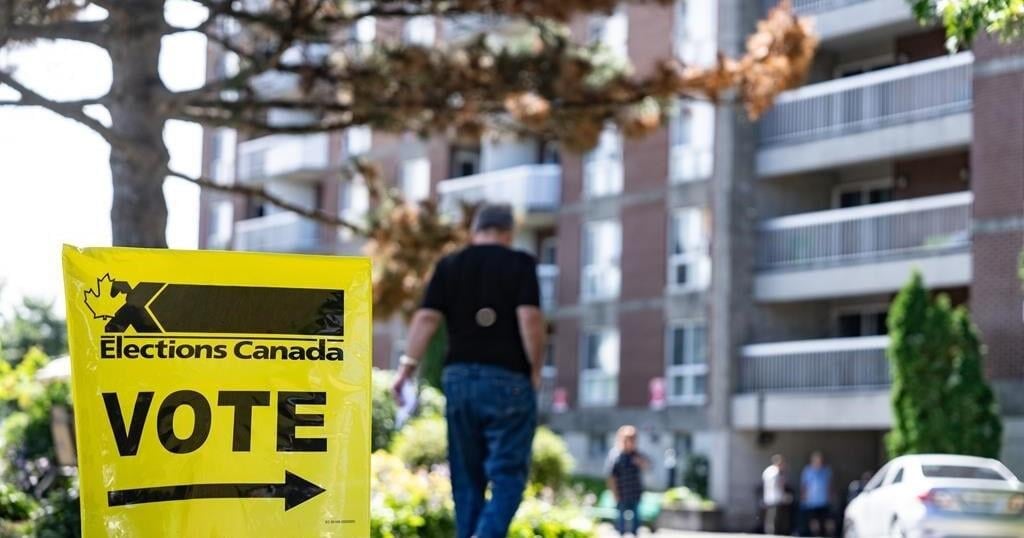
The New Democrats have declared a federal byelection victory in their Winnipeg stronghold riding of Elmwood—Transcona.
The NDP candidate Leila Dance told supporters in a tearful speech that even though the final results weren’t in, she expected she would see them in Ottawa.
With several polls still to be counted, Conservative candidate Colin Reynolds conceded defeat and told his volunteers that they should be proud of what the Conservatives accomplished in the campaign.
Political watchers had a keen eye on the results to see if the Tories could sway traditionally NDP voters on issues related to labour and affordability.
Meanwhile in the byelection race in the Montreal riding of LaSalle—Émard—Verdun the NDP, Liberals and Bloc Québécois remained locked in an extremely tight three-way race as the results trickled in slowly.
The Liberal stronghold riding had a record 91 names on the ballot, and the results aren’t expected until the early hours of the morning.
This report by The Canadian Press was first published Sept. 16, 2024.
The Canadian Press. All rights reserved.
Politics
Another incumbent BC United MLA to run as Independent as Kirkpatrick re-enters race
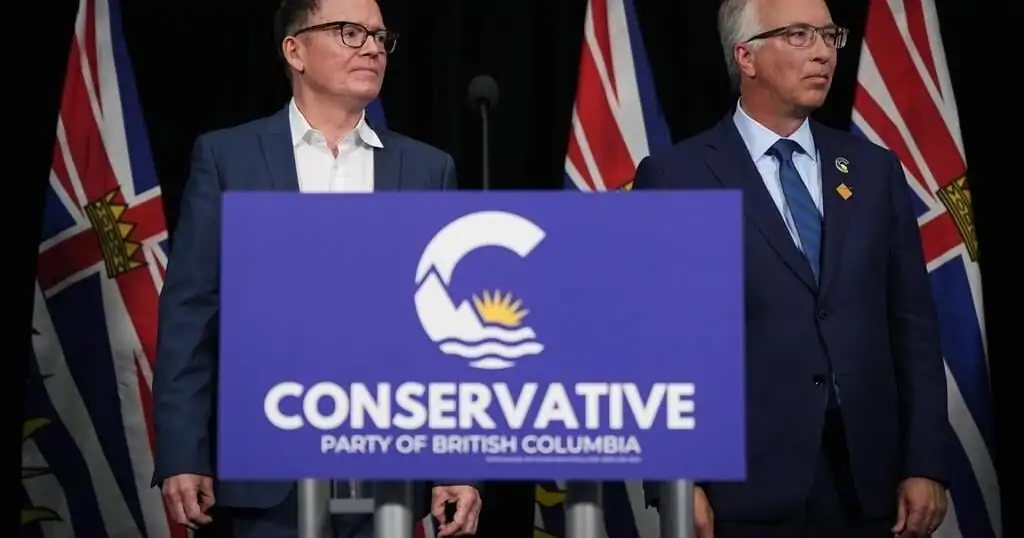
VANCOUVER – An incumbent BC United legislative member has reversed her decision not to seek re-election and has announced she’ll run as an Independent in the riding of West Vancouver-Capilano in the upcoming British Columbia election.
Karin Kirkpatrick has been a vocal critic of BC United Leader Kevin Falcon’s decision last month to suspend the party’s campaign and throw support behind the B.C. Conservatives under John Rustad.
Kirkpatrick announced her retirement this year, but said Monday that her decision to re-enter the race comes as a direct result of Falcon’s actions, which would force middle-of-the-road voters to “swing to the left” to the NDP or to move further right to the Conservatives.
“I did hear from a lot of constituents and a lot of people who were emailing me from across B.C. … that they didn’t have anybody to vote for,” she said. “And so, I looked even at myself, and I looked at my riding, and I said, ‘Well, I no longer have anybody to vote for in my own riding.’ It was clearly an issue of this missing middle for the more moderate voter.”
She said voters who reached out “don’t want to vote for an NDP government but felt deeply uncomfortable” supporting the provincial Conservatives, citing Rustad’s tolerance of what she calls “extreme views and conspiracy theorists.”
Kirkpatrick joins four other incumbent Opposition MLAs running as Independents, including Peace River South’s Mike Bernier, Peace River North’s Dan Davies, Prince George-Cariboo’s Coralee Oakes and Tom Shypitka in Kootenay-Rockies.
“To be honest, we talk just about every day,” Kirkpatrick said about her fellow BC United incumbents now running as Independents. “We’re all feeling the same way. We all need to kind of hold each other up and make sure we’re doing the right thing.”
She added that a number of first-time candidates formerly on the BC United ticket are contacting the group of incumbents running for election, and the group is working together “as good moderates who respect each other and lift each other up.”
But Kirkpatrick said it’s also too early to talk about the future of BC United or the possibility of forming a new party.
“The first thing we need to do is to get these Independent MLAs elected into the legislature,” she said, noting a strong group could play a power-broker role if a minority government is elected. “Once we’re there then we’re all going to come together and we’re going to figure out, is there something left in BC United, BC Liberals that we can resurrect, or do we need to start a new party that’s in the centre?”
She said there’s a big gap left in the political spectrum in the province.
“So, we just have to do it in a mindful way, to make sure it’s representing the broadest base of people in B.C.”
Among the supporters at Kirkpatrick’s announcement Monday was former longtime MLA Ralph Sultan, who held West Vancouver-Capilano for almost two decades before retiring in 2020.
The Metro Vancouver riding has been a stronghold for the BC Liberals — the former BC United — since its formation in 1991, with more than half of the votes going to the centre-right party in every contest.
However, Kirkpatrick’s winning margin of 53.6 per cent to the NDP’s 30.1 per cent and the Green’s 15.4 per cent in the 2020 election shows a rising trend for left-leaning voters in the district.
Mike McDonald, chief strategy officer with Kirk and Co. Consulting, and a former campaign director for the BC Liberals and chief of staff under former Premier Christy Clark, said Independent candidates historically face an uphill battle and the biggest impact may be splitting votes in areas where the NDP could emerge victorious.
“It really comes down to, if the NDP are in a position to get 33 per cent of the vote, they might have a chance of winning,” McDonald said of the impact of an Independent vote-split with the Conservatives in certain ridings.
He said B.C. history shows it’s very hard for an Independent to win an election and has been done only a handful of times.
“So, the odds do not favour Independents winning the seats unless there is a very unique combination of circumstances, and more likely that they play a role as a spoiler, frankly.”
The B.C. Conservatives list West Vancouver School District Trustee Lynne Block as its candidate in West Vancouver-Capilano, while the BC NDP is represented by health care professional Sara Eftekhar.
Kirkpatrick said she is confident that her re-entry to the race will not result in a vote split that allows the NDP to win the seat because the party has always had a poor showing in the riding.
“So, even if there is competition between myself and the Conservative candidate, it is highly unlikely that anything would swing over to the NDP here. And I believe that I have the ability to actually attract those NDP voters to me, as well as the Conservatives and Liberals who are feeling just lost right now.”
This report by The Canadian Press was first published Sept. 16, 2024.
News
Blinken is heading back to the Middle East, this time without fanfare or a visit to Israel
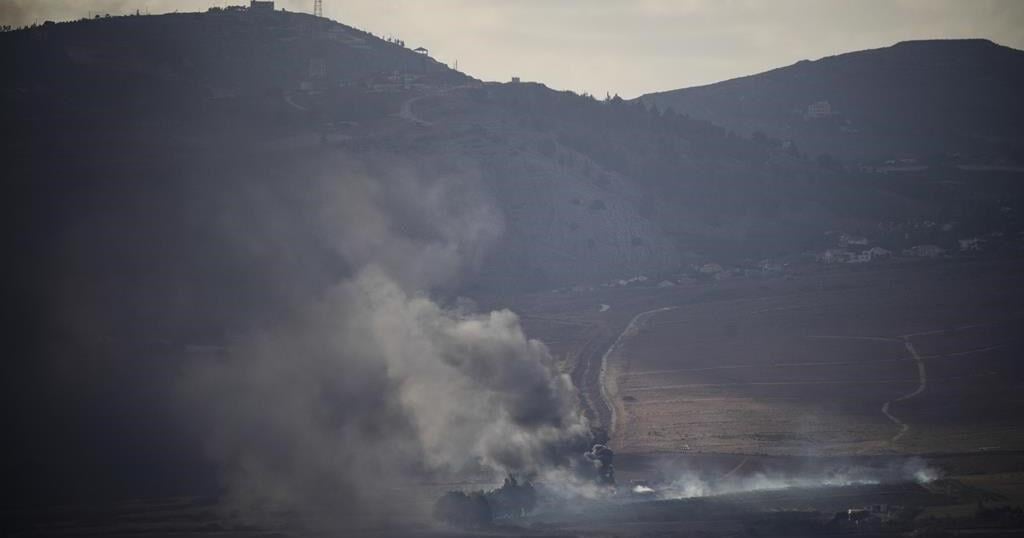
WASHINGTON (AP) — Secretary of State Antony Blinken heads to Egypt on Tuesday for his 10th trip to the Middle East since the war in Gaza began nearly a year ago, this one aimed partly at refining a proposal to present to Israel and Hamas for a cease-fire deal and release of hostages.
Unlike in recent mediating missions, America’s top diplomat this time is traveling without optimistic projections from the Biden administration of an expected breakthrough in the troubled negotiations.
Also unlike the earlier missions, Blinken has no public plans to go to Israel to meet with Prime Minister Benjamin Netanyahu on this trip. The Israeli leader’s fiery public statements — like his declaration that Israel would accept only “total victory” when Blinken was in the region in June — and some other unbudgeable demands have complicated earlier diplomacy.
Blinken is going to Egypt for talks Wednesday with Egyptian Foreign Minister Badr Abdelatty and others, in a trip billed as focused both on American-Egyptian relations and Gaza consultations with Egypt.
The tamped-down public approach follows months in which President Joe Biden and his officials publicly talked up an agreement to end the war in Gaza as being just within reach, hoping to build pressure on Netanyahu’s far-right government and Hamas to seal a deal.
The Biden administration now says it is working with fellow mediators Egypt and Qatar to come up with a revised final proposal to try to at least get Israel and Hamas into a six-week cease-fire that would free some of the hostages held by Hamas in exchange for Palestinian prisoners held by Israel. Americans believe public attention on details of the talks now would only hurt that effort.
American, Qatari and Egyptian officials still are consulting “about what that proposal will contain, and …. we’re trying to see that it’s a proposal that can get the parties to an ultimate agreement,” State Department spokesman Matthew Miller said Monday.
The State Department pointed to Egypt’s important role in Gaza peace efforts in announcing last week that the Biden administration planned to give the country its full $1.3 billion in military aid, overriding congressional requirements that the U.S. hold back some of the funding if Egypt fails to show adequate progress on human rights. Blinken told Congress that Egypt has made progress on human rights, including in freeing political prisoners.
Blinken’s trip comes amid the risk of a full-on new front in the Middle East, with Israel threatening increasing military action against the Hezbollah militant organization in Lebanon. Biden envoy Amos Hochstein was in Israel on Monday to try to calm tensions after a stop in Lebanon.
Hezbollah has one of the strongest militaries in the Middle East, and like Hamas and smaller groups in Syria and Iraq it is allied with Iran.
Hezbollah and Israel have exchanged strikes across Israel’s northern border with Lebanon since the Oct. 7 attack by Hamas started the war in Gaza. Hezbollah says it will ease those strikes — which have uprooted tens of thousands of civilians on both sides of the border — only when there’s a cease-fire in Gaza.
Hochstein told Netanyahu and other Israeli officials that intensifying the conflict with Hezbollah would not help get Israelis back in their homes, according to a U.S. official. The official, who spoke on the condition of anonymity to discuss the private talks, said Hochstein stressed to Netanyahu that he risked sparking a broad and protracted regional conflict if he moved forward with a full-scale war in Lebanon.
Hochstein also underscored to Israeli officials that the Biden administration remained committed to finding a diplomatic solution to the tensions on Israel’s northern border in conjunction with a Gaza deal or on its own, the official said.
Netanyahu told Hochstein that it would “not be possible to return our residents without a fundamental change in the security situation in the north.” The prime minister said Israel “appreciates and respects” U.S. support but “will do what is necessary to maintain its security and return the residents of the north to their homes safely.”
Israel Defense Minister Yoav Gallant, meanwhile, warned in his meeting with Hochstein that “the only way left to ensure the return of Israel’s northern communities to their homes will be via military action,” his office said.
In Gaza, the U.S. says Israel and Hamas have agreed to a deal in principle and that the biggest obstacles now include a disagreement on details of the hostage and prisoner swap and control over a buffer zone on the border between Gaza and Egypt. Netanyahu has demanded in recent weeks that the Israeli military be allowed to keep a presence in the Philadelphi corridor. Egypt and Hamas have rejected that demand.
The Hamas-led attacks in southern Israel on Oct. 7 killed about 1,200 people. Militants also abducted 250 people and are still holding around 100 hostages. About a third of the remaining hostages are believed to be dead.
Israel’s offensive in Gaza has killed more than 41,000 Palestinians, said Gaza’s Health Ministry, which does not distinguish between civilians and militants in its count. The war has caused widespread destruction, displaced a majority of Gaza’s people and created a humanitarian crisis.
Netanyahu says he is working to bring home the hostages. His critics accuse him of slow-rolling a deal because it could bring down his hardline coalition government, which includes members opposed to a truce with the Palestinians.
Asked earlier this month if Netanyahu was doing enough for a cease-fire deal, Biden said, simply, “no.” But he added that he still believed a deal was close.
___
Associated Press writer Aamer Madhani contributed to this report.
-

 News10 hours ago
News10 hours agoWorld Junior Girls Golf Championship coming to Toronto-area golf course
-

 Economy23 hours ago
Economy23 hours agoLiberals announce expansion to mortgage eligibility, draft rights for renters, buyers
-

 Sports22 hours ago
Sports22 hours agoPenguins re-sign Crosby to two-year extension that runs through 2026-27 season
-

 Business11 hours ago
Business11 hours agoPolitics likely pushed Air Canada toward deal with ‘unheard of’ gains for pilots
-

 Sports22 hours ago
Sports22 hours agoFernandez and Dabrowski headline Canadian lineup for Billie Jean King Cup Finals
-

 News11 hours ago
News11 hours agoDonald Trump doesn’t share details about his family’s cryptocurrency venture during X launch event
-

 News20 hours ago
News20 hours agoFormer military leader Haydn Edmundson found not guilty of sexual assault
-

 News11 hours ago
News11 hours agoBlinken is heading back to the Middle East, this time without fanfare or a visit to Israel





